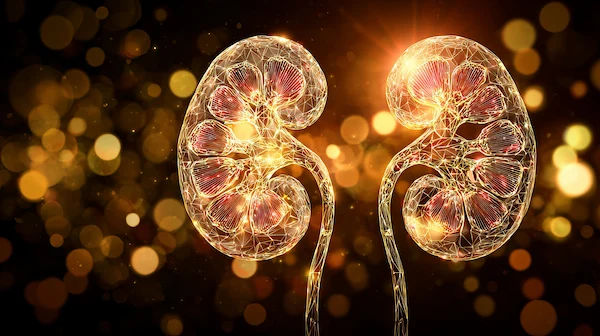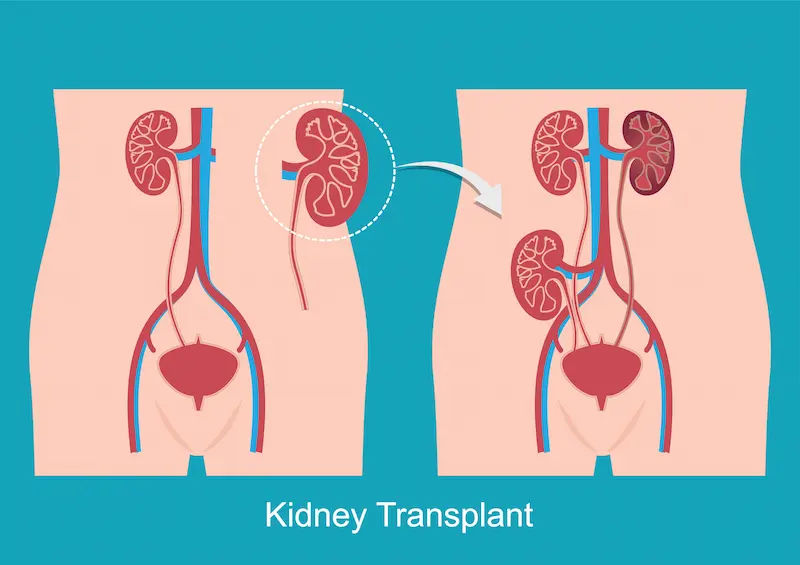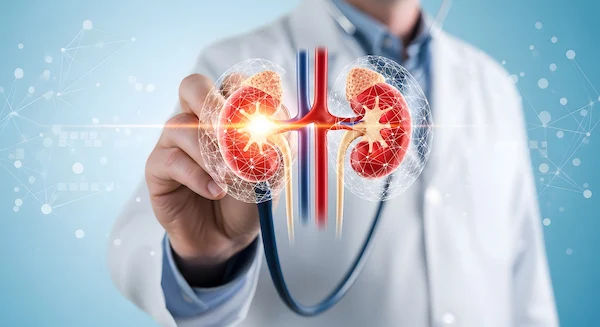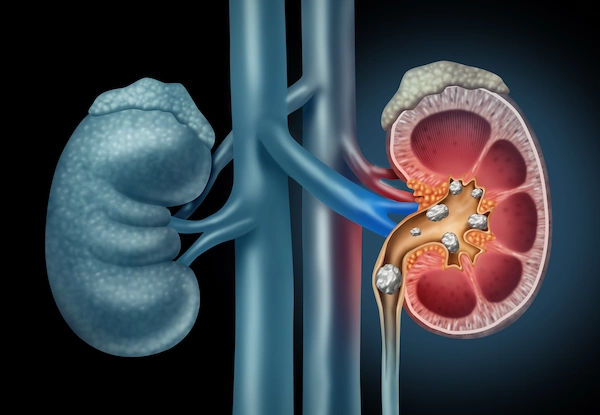What Leads To Signs Of Hyperuricemia And Prevention
Discover the causes and symptoms of hyperuricemia and learn effective prevention strategies to maintain healthy uric acid levels and reduce your risk of gout and other complications

Written by Dr. M L Ezhilarasan
Reviewed by Dr. Rohinipriyanka Pondugula MBBS
Last updated on 13th Jan, 2026

Introduction
Have you ever experienced a sudden, excruciatingly painful, red, and swollen joint, often in the big toe? This could be gout, a common and complex form of arthritis, and its primary trigger is a condition known as hyperuricemia—high levels of uric acid in the blood. But what if you have high uric acid with no symptoms? Is there still cause for concern? Absolutely. Hyperuricemia is a silent precursor to several health issues. The good news is that it is largely manageable and preventable through informed lifestyle choices. This comprehensive guide will demystify what leads to signs of hyperuricemia, help you recognize its symptoms, and provide a practical, evidence-based action plan for prevention and long-term control, empowering you to take charge of your health.
What is Hyperuricemia? Understanding Uric Acid
Hyperuricemia is not a disease in itself but a biochemical abnormality. It occurs when the concentration of uric acid in your blood exceeds 6.8 mg/dL, which is the point at which uric acid becomes saturated in the blood and can crystallize. To understand this, we need to look at where uric acid comes from.
The Role of Uric Acid in the Body
- Uric acid is a natural waste product created when the body breaks down purines—substances found in your own cells and in certain foods. It travels through your bloodstream to your kidneys, where it is filtered out and excreted in urine. In normal amounts, uric acid actually acts as an antioxidant and helps protect the lining of our blood vessels. The problem arises when the body produces too much uric acid or, more commonly, the kidneys excrete too little.
When Good Uric Acid Goes Bad: The Formation of Crystals
- When levels become too high, the excess uric acid loses its solubility. It begins to form tiny, needlesharp urate crystals. These crystals can deposit in joints, tendons, and surrounding tissues, triggering a severe inflammatory response that we know as a gout attack. They can also accumulate under the skin forming lumps called tophi, or cluster in the kidneys, leading to painful kidney stones.
The Primary Culprits: What Causes High Uric Acid Levels?
A combination of factors can disrupt the delicate balance of uric acid production and elimination.
- Dietary Factors: The Purine Problem
Diet is a major contributor. Consuming foods very high in purines gives your body more material to convert into uric acid. The main offenders include: - Animal-based Purines: Red meat (beef, lamb), organ meats (liver, sweetbreads), and certain seafood (anchovies, sardines, mussels, scallops, tuna).
- Fructose: This is a crucial and often overlooked trigger. High-fructose corn syrup, found in sugary sodas, fruit juices, and processed snacks, increases uric acid production during its metabolism.
Lifestyle and Medical Triggers
Obesity and Metabolic Syndrome
- Being overweight causes the body to produce more uric acid and makes it harder for the kidneys to filter it out. Hyperuricemia is strongly linked to metabolic syndrome—a cluster of conditions including high blood pressure, high blood sugar, excess body fat around the waist, and abnormal cholesterol levels.
Certain Medications and Health Conditions
- Diuretics (water pills), low-dose aspirin, and drugs for immunosuppression can raise uric acid levels. Underlying health issues like untreated high blood pressure, diabetes, chronic kidney disease, and psoriasis can also impair the body's ability to manage uric acid effectively.
The Role of Genetics and Kidney Function
- Sometimes, the cause is genetic. Some people simply have a genetic predisposition that makes their bodies produce more uric acid or excrete less of it. Ultimately, most cases of hyperuricemia boil down to reduced kidney function in clearing urate, whether from other health conditions, medications, or genetic factors.
Consult a General Physician
Recognizing the Signs: Symptoms of Hyperuricemia
The Silent Phase: Asymptomatic Hyperuricemia
- Most people with high uric acid levels have no symptoms at all. This stage can last for years. While it may not cause pain, the excess uric acid can still be causing low grade inflammation and damage internally, which is why monitoring and prevention are key even without symptoms.
When Symptoms Strike: Gout and Beyond
The first sign of symptomatic hyperuricemia is often an acute gout attack. This is characterized by:
- Intense Joint Pain: Typically affecting the large joint of the big toe, but also ankles, knees, elbows, wrists, and fingers.
- Lingering Discomfort: After the most severe pain subsides, some joint discomfort can last from days to weeks.
- Inflammation and Redness: The affected joint becomes swollen, tender, warm, and red.
- Limited Range of Motion: As the attack progresses, you may not be able to move the joint normally.
If high uric acid levels are left unmanaged, attacks can become more frequent and severe, and crystals can form tophi (chalky nodules under the skin) or lead to chronic gouty arthritis and kidney stones.
Your Action Plan: How to Prevent and Manage Hyperuricemia
Dietary Strategies for Uric Acid Control
Foods to Limit or Avoid
- HighPurine Meats & Seafood: Reduce intake of red meat, organ meats, and certain fish like anchovies and shellfish.
- Sugary Beverages: Eliminate sodas and fruit drinks sweetened with high-fructose corn syrup.
- Alcohol: Beer, in particular, is high in purines and also dehydrates you, doubling the trouble. Wine and spirits should also be consumed in moderation.
Beneficial Foods to Include
- LowFat Dairy: Milk, yogurt, and cheese have been shown to lower uric acid levels.
- Complex Carbohydrates: Eat more whole grains, fruits, and vegetables. (Note: Most vegetables high in purines, like spinach and asparagus, do not significantly increase gout risk and are healthy).
- Coffee: Both regular and decaf coffee are associated with a lower risk of hyperuricemia.
- Vitamin C: Foods like citrus fruits or a supplement (check with a doctor) can help the kidneys remove uric acid. A study published in the Archives of Internal Medicine found that higher vitamin C intake was independently associated with a lower risk of gout.
The Power of Hydration
- Drinking plenty of water—aim for 810 glasses a day—is one of the simplest and most effective ways to prevent gout attacks. Water helps the kidneys flush out excess uric acid, preventing it from concentrating and crystallizing.
Lifestyle Modifications: Weight and Exercise
Losing weight slowly and steadily through a balanced diet and regular exercise is crucial. However, avoid crash dieting or intense workouts that can cause dehydration and temporarily spike uric acid levels. Focus on low impact activities like swimming, cycling, and walking.
When to Seek Professional Help?
If you experience a sudden, severe attack of joint pain and inflammation, or if you have risk factors (family history, obesity, kidney issues) and want to check your levels, it's time to see a doctor. If your symptoms persist beyond two weeks, consult a doctor online with Apollo24|7 for further evaluation. They can diagnose hyperuricemia through a simple blood test to measure your serum uric acid level. Apollo24|7 offers a convenient home collection for tests like this, making the process seamless. Treatment may involve medications to reduce pain and inflammation during an attack and long-term drugs to lower uric acid production or improve its excretion.
Quick Takeaways
- Hyperuricemia means high uric acid in the blood, often with no initial symptoms.
- Left unchecked, it can lead to painful gout attacks, tophi, and kidney stones.
- Major causes include a diet high in purines and fructose, obesity, certain medications, and genetic factors.
- Prevention is centered on hydration, a balanced diet low in sugary drinks and red meat, and maintaining a healthy weight.
- Regular monitoring through blood tests is important for those at risk.
- Always consult a doctor for a proper diagnosis and personalized treatment plan.
Conclusion
Hyperuricemia is a common condition, but it doesn't have to dictate your quality of life. By understanding the factors that lead to high uric acid levels—from dietary choices like purine-rich foods and sugary drinks to underlying health and genetic factors—you are empowered to take proactive steps. Embracing a lifestyle focused on prevention, including mindful eating, staying hydrated, and maintaining a healthy weight, is your strongest defense against painful gout attacks and other complications. Remember, knowledge is the first step, but action is what leads to results. Start by incorporating one or two changes from this guide today, and take control of your uric acid levels for a healthier, more comfortable tomorrow.
Consult a General Physician
Consult a General Physician

Dr Divya Lekha Gunta
General Practitioner
10 Years • MBBS, MD (Pathology)
Visakhapatnam
Apollo 24|7 Clinic - Andhra Pradesh, Visakhapatnam

Dr. Shesham Srinidhi
General Practitioner
5 Years • MD(physician)
Hyderabad
Apollo 24|7 Clinic, Hyderabad
(150+ Patients)

Dr. Rajib Ghose
General Physician/ Internal Medicine Specialist
25 Years • MBBS
East Midnapore
VIVEKANANDA SEBA SADAN, East Midnapore

Dr. Khuda Baksh Nagur
General Physician/ Internal Medicine Specialist
11 Years • MBBS, MD (GENERAL MEDICINE), Certificate Programme clinicians in Diabetes Management
Bengaluru
Medwin multispeciality clinic, Bengaluru
(25+ Patients)

Dr. Swaroopa Rani
General Physician/ Internal Medicine Specialist
9 Years • MBBS, MD (Internal Medicine)
Bengaluru
Apollo Medical Center, Marathahalli, Bengaluru
Consult a General Physician

Dr Divya Lekha Gunta
General Practitioner
10 Years • MBBS, MD (Pathology)
Visakhapatnam
Apollo 24|7 Clinic - Andhra Pradesh, Visakhapatnam

Dr. Shesham Srinidhi
General Practitioner
5 Years • MD(physician)
Hyderabad
Apollo 24|7 Clinic, Hyderabad
(150+ Patients)

Dr. Rajib Ghose
General Physician/ Internal Medicine Specialist
25 Years • MBBS
East Midnapore
VIVEKANANDA SEBA SADAN, East Midnapore

Dr. Khuda Baksh Nagur
General Physician/ Internal Medicine Specialist
11 Years • MBBS, MD (GENERAL MEDICINE), Certificate Programme clinicians in Diabetes Management
Bengaluru
Medwin multispeciality clinic, Bengaluru
(25+ Patients)

Dr. Swaroopa Rani
General Physician/ Internal Medicine Specialist
9 Years • MBBS, MD (Internal Medicine)
Bengaluru
Apollo Medical Center, Marathahalli, Bengaluru
More articles from Kidney Failure
Frequently Asked Questions
Can I have high uric acid without ever getting gout?
Yes, this is called asymptomatic hyperuricemia. Most people with elevated levels never develop gout symptoms, but they may still be at a slightly higher risk for other issues like kidney stones and should monitor their health.
Are tomatoes bad for high uric acid?
Tomatoes are listed as a common trigger for some gout patients in some studies, though they are not high in purines. The link isn't fully understood. If you notice tomatoes consistently precede your gout attacks, it may be wise to limit them.
What is the fastest way to lower uric acid naturally during an attack?
While natural methods work best over time, during an attack, focus on staying extremely well hydrated with water, applying ice to the swollen joint to reduce inflammation, and resting the joint. However, medical treatment is often necessary for rapid relief.
Does lemon water help reduce uric acid?
Yes, lemon water may help. Although lemons contain citric acid, they have an alkalizing effect in the body and provide vitamin C, both of which can help make uric acid more soluble and easier to excrete.
How often should I get my uric acid levels checked?
If you have been diagnosed with hyperuricemia or gout, your doctor will recommend a schedule, typically every 612 months once levels are stable. If you are at risk but asymptomatic, discussing a baseline test with your doctor during a regular checkup is a good idea.




